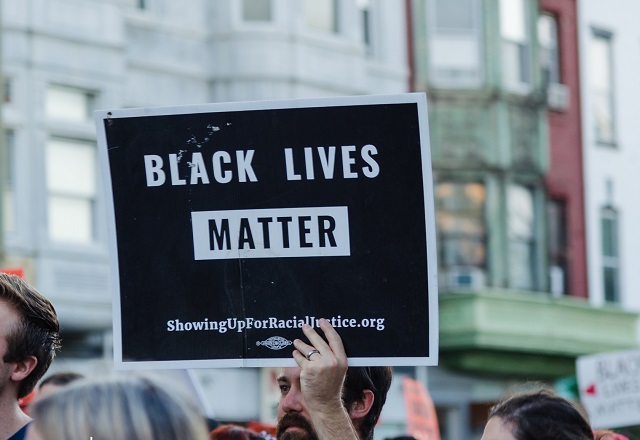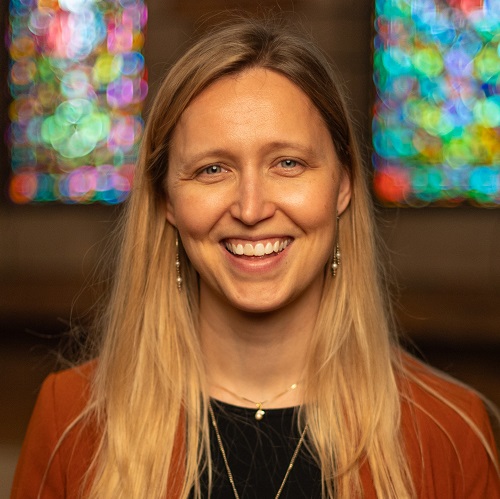Living in Atlanta, Georgia, has challenged this Midwesterner in many ways. Pollen, for one! Even more, experiencing diverse racial interactions has been a revelation.
Part I: A Holy Spirit gut-punch
I distinctly remember a conversation I had a few months after I moved here:
“You know what I’m tired of seeing? White houses with ‘Black Lives Matter’ signs in their front yards.” My friend’s words surprised me. He is Black; I am White. I figured White people who had BLM signs in their front lawns would have been seen as allies. But his exasperated tone stopped me short. “Why?” I asked. “Because too often it’s not actually a show of support for Black people. White people want to separate themselves from being racist — which isn’t a bad thing. The bad thing is when they support Black people in order to cement their identity as ‘non-racist’ and not actually to help Black people.” Again, I paused. Thought. “So … what should White people do?” My friend looked me in the eye. “Stop trying to pretend it’s going to get any better. And then spend the rest of your life trying to make it better.” It was such a powerful moment for me. In my Lutheran-speak, it was Law and Gospel all rolled up in one powerful punch.
The Law, the moment of painful self-truth, delivered directly from the Holy Spirit: You can’t make it better. You will always see things first as a White person and with your own self-interest. You’re not fooling anyone by pretending that’s not the case.
The Gospel: admit it. Own up to it. And then roll up your sleeves anyway, and get to work.
Embracing that dual reality has been one of the most freeing things I’ve done. I have always been so terrified of asking ignorant questions for fear of seeming racist. News flash, my friend’s wry smile told me: you’re not fooling anyone. But his open manner also told me that owning up to that fact opens you up to actually asking those questions. I was freed to no longer pretend like I understood, but to actually listen to answers. (Though I do always preface my questions with, “Is it a good day for an ignorant-White-person question, or a bad one?”)
Preaching while being White in my contexts has allowed me to pretty much ignore the issue of race. But embracing that, owning it? Somehow, I feel a lot freer to talk about the issue, to engage it. Now, my preaching comes as a pulpit supply pastor these days, so the potential fallout is more distant for me. But I don’t think I’m the only White preacher to have nagging thoughts on this issue: Do you engage with the issue of race in your context — at all? Do you sort of wish you could?
If you do, spend a week or two praying on it. See what the Holy Spirit says, look for Her signals in your life. Then come back next week and see Part II of this article for some more detailed suggestions. And until then, be on the lookout for a Holy Spirit gut-punch. I hear She’s feeling playful these days.
Part II: Preaching race with power and grace
Welcome back! If you spent the week(s) praying and are feeling the Spirit’s call to include race as an aspect of your preaching, here are several suggestions on how to begin:
Option 1: Listen
The first one is likely the best: start by listening. Who are the people in your life whose race is different than yours? Have you ever asked them your somewhat-awkward-but-oh-so-important questions? (Remember: preface with, “Is it a good day for an ignorant-White-person question, or a bad one?”)
Start there. Listen there. Hear as clearly as you can and be as honest as you can. In “Why ‘Preaching + _____?’” Rev. Lee Ann Machosky Pomrenke writes, “I am not qualified to preach with authority on someone else’s experience while interpreting Scripture. Yet, I am absolutely qualified to ask questions; to seek out people with that authority connected to our community or theological tradition to talk about it; to read accounts and analysis … I am completely qualified to search for voices we’ve never heard in our space before, and amplify them.”
In that search, you will likely hear things that give you pause. Things similar to what Rev. Kenneth Wheeler writes in “Preaching + Forgiveness”: “My middle son is working on the Wheeler family tree. In the course of his research, he’s asked me about particular names and I have had to say to him, ‘I don’t know who that person is.’ This has made me acutely aware of the personal toll that southern segregation had on Black families, on my family; and not just the tragic loss of lives through lynching, but more perniciously, in the separation and the dismantling of Black families.”
Pastor Wheeler’s story is not your story; but how powerful it would be to preach his story after leading your congregation through a mental trip of their family tree — and then showing them how Black family trees just stop. We see something similar in the biblical story: all is well and good for the Israelites during the monarchy. But things change once Babylon steamrolls Jerusalem and exiles some of its members. Witness to the Exile is practically nonexistent in the Bible: where they went, who they were, what it was like. Almost the only textual witness is lament: Lamentations, Ezekiel. It is not the people’s family tree that suddenly stops; but their family tree with God is suddenly silenced by violence and oppression.
Option 2: Get mad
Another option of how to begin is to lead with your grief or anger. Preaching while angry at your congregation is probably not a good idea; preaching while angry on behalf of the oppressed has a biblical, even divine precedent. And, it can be very powerful and very honest. For more, see “Preaching Angry” by Bruce Reyes-Chow: “The privilege that it is to choose not to engage in what is going on in the world is becoming more and more difficult to uphold. This is a good thing and whether it is around race, gender, or a myriad of other areas of human experience, a reality that we must all confront at some point in our life in some area of our pastoral leadership … quite frankly, the world needs and deserves more from churches who have historically stood against injustice.” Are there people in your community who need you to be angry? (Though always be on your guard, taking care to communicate through that anger without letting it blind you.)
Option 3: Get playful
Another option is to lead with a spirit of playful discovery. In “‘And How is It that We Each Hear … ?’: Preaching and Ethnic Diversity” Eric Barreto writes, “I would argue the dream of a “post-racial” society is ultimately empty. [ … ] The gospel does not seek to end our differences entirely; the gospel does not seek to make us all the same, to flatten our diversity in order to make us one. God has created human diversity as a gift to be treasured not an obstacle to be overcome.” In this spirit, dive into this endeavor with the joy of a child discovering a new world. (Though always be on your guard, taking care to not let joy of diversity become an excuse to avoid more uncomfortable issues of injustice.)
Option 4: Go deeper
Whichever way you choose to begin, fear not! There are wonderful resources at your very fingertips:
- Preach the Bible’s geography. When you preach about places in the Bible, do 5 minutes of Google Research to find out the modern-day equivalent, and use the name of that country in your sermon. In “Tracing the Bible’s Connection to Africa,” Dr. Alphonetta Wines gives a helpful and succinct overview of the ways the Bible and Christianity have been shaped by people and places we now consider “other:” Egypt, Iran, Iraq. Wines writes, “As the world is becoming more and more diverse, it’s worth acknowledging the diversity that has been integral to the fabric of the biblical text and of the Christian faith.”
- Know who’s at your planning table. In “Who’s at the Table? Planning Worship in Community” Bradley E. Schmeling writes, “Gathering a variety of congregation members together to pick hymns, plan seasonal themes, and orchestrate creative expressions of ancient patterns was part of planning a communal worship experience. It’s important to bring together a group of people that reflect the diversity of experience in our congregation. Otherwise, we tend to replicate the patterns and themes that we know by heart, setting into stone assumptions about culture and tradition. Even though it can be frustrating to have people around a table with different styles or preferences, good worship planning requires compromise. I used to tell people, ‘As long as some of the people are unhappy, we must be doing something right. You just don’t want the same people unhappy all the time. Everyone gets a chance to sing something that they hate!’” What is the mix of people who fully represent your community? Are they all at the planning table?
- Connect your stories with food. Most radically, and I dare say most fun, Rev. Dr. Heber Brown III lifts up his congregation’s initiative which gets straight at the heart of one of the most racialized topics in our nation: food. This initiative focuses not on preaching, but on action. In “Preaching + Food” Brown writes, “If we couldn’t afford … fresh food, why not use church land to grow our own? That’s just what we did. On about 1,500 square feet of our church’s front yard we grow greens, broccoli, tomatoes, squash, and herbs. We sell the produce at rates that beat the pricing of local markets and the garden has deepened our ties to our local community as well. The vision grew to the point where now under the banner of the Black Church Food Security Network, I help other African American congregations establish gardens on their land and link the churches with historically marginalized Black farmers to provide a pipeline for fresh produce from ‘soil to sanctuary.’” Where is your church located? Is there a direct need of the community which your facilities could address? If your congregation has been resistant to direct conversation about issues of race, such an endeavor could be a way into the discussion that centers on relationships.
Steady on, my preaching colleagues. And may the Spirit free you to both own your race and to preach on race in a way that our country so desperately needs.

